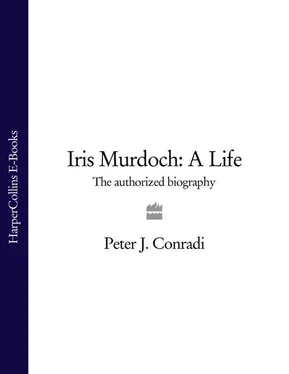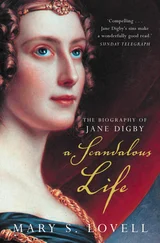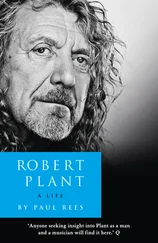The childlike, visceral excitements of these works travelled with Iris through adulthood. Intellectual though she was, she never despised the old-fashioned, primitive satisfactions of storytelling. She gave Hands’s surname to a favoured character, Georgie, in A Severed Head. Among the first passages to move her was a quarrel between the swashbuckling Alan Breck and David Balfour, the quiet abducted Lowlander in Stevenson’s Kidnapped, 11 and a quarrel between two men later fuelled many of her novels. Kim is cited in Nuns and Soldiers when Gertrude and the ex-nun Anne imagine travelling through life ‘like Kim and the lama’. And in her most difficult and intimate novel, The Black Prince, she gave her semi-autobiographical hero the dying words ‘I wish I’d written Treasure Island.’ ‘Stories are art, too,’ he had earlier explained. Perhaps good writers retain their childlike interest in and wonder at the world. Iris’s Belfast cousins were much struck that Iris, though so intelligent and academic, was simultaneously so simple. When cousin Sybil lost her husband and Iris at the Festival of Britain in 1951, she discovered them riding together on the merry-go-round, en route to see the ‘amazing motor-cyclists’ on the Wall of Death. ‘I do like your Reggie,’ Iris pronounced, with the only child’s unconscious egoism.
When the family came to England, their absolute friendlessness there somehow did not matter, since the three of them were such a ‘tight little entity’. Hughes probably did not introduce his office acquaintance into the family circle. Nor did he and Irene miss social life, Hughes being, like many men of his class and time, a home-body. Yet the compactness and intimacy of this family unit is remarkable. Iris had her own names for her parents, unusual for a child in those inter-war days. ‘Rene’ and ‘Doodle’ was how she normally addressed them – ‘Doodle’ being Iris’s coinage, and perhaps a baby’s mispronunciation of ‘Daddy’.
When Iris created the aptly named (since innocent) ‘Adam’ Arrowby in The Sea, The Sea, it was of her own father that she was thinking.
My father was a quiet bookish man and somehow the gentlest being I have ever encountered. I do not mean he was timid, though I suppose he was timid. He had a positive moral quality of gentleness. I can picture him now so clearly, bending down with his perpetual nervous smile to pick up a spider on a piece of paper and put it carefully out of the window or into some corner where it would not be disturbed. I was his comrade, his reading companion, possibly the only person with whom he ever had a serious conversation … We read the same books and discussed them: children’s books, adventure stories, then novels, history, biography, poetry, Shakespeare. We enjoyed and craved for each other’s company … I remember feeling in later life that no one else ever knew how good my father was. 12
Perhaps the family’s Irishness contributed to their self-containment. Landladies, after all, put up notices advertising rooms with the proviso ‘No blacks, no dogs, no Irish’ as late as the 1950s. In the 1920s, at the height of the Troubles, when the Murdochs first settled in London, an Irish accent could not have been an asset. Iris’s future mother-in-law Olivia Bayley, née Heenan and half-Irish by descent, was determinedly English, ‘plus royaliste que le roi’. Rene by contrast had a brogue which deepened in some situations. And, as cousin Sybil was to discover on a visit to Birmingham coinciding with the terrible IRA bombings of the 1970s, 13the English are not always skilled in making nice distinctions between varieties of Irish voice and identity.
Around Iris’s sixth birthday memorable things started to happen. Rene got her a little wind-up man on a tricycle – ‘I see him so clearly, and her.’ 14She went to her first school. And, not long after, the family moved from Brook Green to Chiswick. Hughes must have had an adventurous streak as well as being a homebody, since around 1926 he bought a small, newly built, semidetached gabled house in Chiswick. His annual salary was well under £400 per year, so he took out a mortgage. There was a newly planted chestnut tree outside, and the house, at 4 Eastbourne Road, was tucked away off what was soon to become the Great West Road. The family took walks in the grounds of nearby Chiswick House.
On 15 January 1925, aged five and a half, Iris had entered the Froebel Demonstration School at Colet Gardens, a very good, quite expensive day-school, a fifteen-minute walk across Brook Green from the Caithness Road flat, presumably chosen partly because of proximity. It was the ‘demonstration school’ for Froebel College at Grove House in Roehampton, and had just over a hundred pupils. Iris flourished there. The new house must also have been bought with proximity in mind. Eastbourne Road was five short stops from Froebel on the District Line, close enough to be walkable in summer.
At first Iris’s mother took her to school – a contemporary recalled Rene as very pretty and smart, intimidatingly attractive and stylish. 15Later, after the move, Hughes would sometimes accompany her on the Tube on his way to work, Iris getting out and walking the last two minutes from Barons Court station by herself. She used to buy sweets on the way. Another contemporary recalls the general taste for ‘sudden-death boiled sweets’, the Wall’s ice cream man who would drive along the road in front of the school with his van marked ‘Stop Me and Buy One’, the excitement of the children clustering round and buying a cold, hard, sharpish-flavoured triangular water-ice on a stick, good value at about a penny, roast chestnuts in winter, when Hammersmith was enlivened by barrows lit up with paraffin flares. 16Some little schoolfriend, to tease Iris, suggested as a joke that she go into the sweet-shop and order ‘one quarter of a pound of Gleedale Munchums’. Gleedale toffees existed, but not Gleedale Munchums. ('Gleedale Munchums’ became a lifelong Bayley family joke.)
Iris’s first day at school was ‘momentous and gratifying’. She had been placed in the kindergarten in the one-storeyed building which had been the original school in 1893, under either Miss Ilse Williams or the capable and imaginative Miss Gladys Short, who died from a bee sting twenty years later. Both the term ‘kindergarten’ and the concept of learning through creative play and adventures had been coined by the German educationalist Friedrich Froebel (1782–1852). Hughes’s excellent tuition of Iris ‘told’, and she was promptly moved up to the Transition group. She exchanged the simple shantung ‘overall’ – kindergarten uniform – for the green serge pinafore dress – gingham in summer – worn over a cream shantung blouse by the older girls, and a leaf-green jacket bearing the Froebel badge of that time, a reversed swastika within a circle, embroidered with a black outline and filled in with white embroidery thread. Called a Greek cross symbol or ‘fylfot’, the full version bore the legends ‘Outworld – Facts and Acts’ on the upper plane, and on the lower ‘Inworld — Memories and Plans’. After 1939, for reasons not hard to discern, this quaint school symbol was changed to a Michaelis daisy. The school motto – ‘ Vincit qui se vincit’ – suggests the humanism which the adult Iris would passionately defend: ‘He conquers who conquers himself.’
There were boys up to the age of eleven – another symptom of the school’s progressivism – dressed in grey shirts, shorts and blazers. Some daring girl taught Iris, almost at once, to slide across the parquet floor. And she learnt to write, with a relief nib with a hard square tip, what was termed ‘script’. It replaced the old copperplate with a larger font. The first sentence she copied, in noble plain ‘script’ letters, was: ‘The snowdrop hangs its head down. Why?’ ‘Why indeed!’ she later wrote. ‘A thought-provoking question, a good introduction to a world which is full of mysteries.’ Recalling Froebel evoked reverence and gratitude: ‘A spirit of courtesy, of dignity, of standards, of care for others, was painlessly induced. Relations between boys and girls … were happy and orderly and innocent. We were all remarkably good children.’ Learning was ‘both rigorous and painless’. Her images of those schooldays were ‘of light, of freedom and happiness, the great greedy pleasures of learning, the calm kindly authority of teachers, the mutual amiability of children’. 17
Читать дальше










